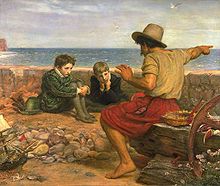BOOKS and publishing seems to be coming to terms with creative destruction these days much as musicians began to a few years back. The latest batch of bad news comes from the UK, in which a survey shows that authors have lost significant financial ground over the last eight years and make, on median, about 11 pounds, below Britain’s equivalent of the poverty rate. Here‘s The Guardian:
According to a survey of almost 2,500 working writers – the first comprehensive study of author earnings in the UK since 2005 – the median income of the professional author in 2013 was just £11,000, a drop of 29% since 2005 when the figure was £12,330 (£15,450 if adjusted for inflation), and well below the £16,850 figure the Joseph Rowntree Foundation says is needed to achieve a minimum standard of living. The typical median income of all writers was even less: £4,000 in 2013, compared to £5,012 in real terms in 2005, and £8,810 in 2000.
Novelist Will Self recently complained about the situation, and this data bears him out. Of course, it has never been easy to make a living as a writer — or any other kind of artist — but these numbers show a steep drop. And it’s not limited to the UK: A few years ago, my then-agent told me to expect — thanks to online bookselling and the economic slump — an advance about half of what I would have drawn before the recession. (For a serious book by a non-celebrity writer, the numbers were not typically all that high, so slicing them  up makes it hard to commit to a project unless the author is independently wealthy.)
up makes it hard to commit to a project unless the author is independently wealthy.)
As with any members of the creative class, the writers who earn the most get the vast majority of media coverage, skewing public perception about what it’s like to write for a living. “Most people know that a few writers make a lot of money,” poet Wendy Cope told the paper. “This survey tells us about the vast majority of writers, who don’t. It’s important that the public should understand this – and why it is so important for authors to be paid fairly for their work.”

Median household incomes in the U.S. fell 7.5 percent from 2008 to 2013. Clearly it is worse for writers, but the trend is pervasive. As corporations merge into mega-corporations (we used to have anti-trust laws), there will be more and more dictating of lower wage levels. Writers have suffered more than most because so many publishing houses have vanished and power has been concentrated into very few corporate hands. But, hey, corporations are people too ….